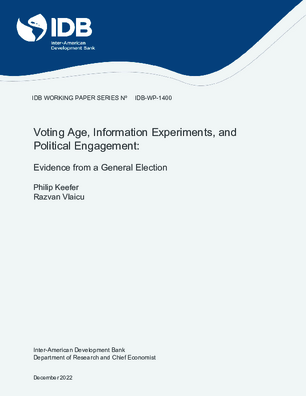Voting Age, Information Experiments, and Political Engagement: Evidence from a General Election
Date
Dec 2022
We exploit new experimental and quasi-experimental data to investigate voters' intrinsic motivation to engage politically. Does having the right to vote increase engagement or, given significant incentives to free ride, do eligible voters remain rationally unengaged? Does knowledge that ones group is pivotal reduce free riding? And are the politically engaged influenced by election-relevant policy information in the run-up to a major election? To address these questions, we fielded an original survey of 5,400 Mexican high school seniors just prior to the historic 2018 general election. Age-based regression discontinuity results show that the just-eligible score higher on measures of low-cost political engagement compared to the just-ineligible. A first survey experiment reveals that information that the youth vote will be pivotal increases the eligible respondents' interest in the presidential debate and in the election result. In the second experiment, information about current policy outcomes affects future policy priorities in ways consistent with the incentives of eligible respondents to collect relevant information on salient policy issues.




